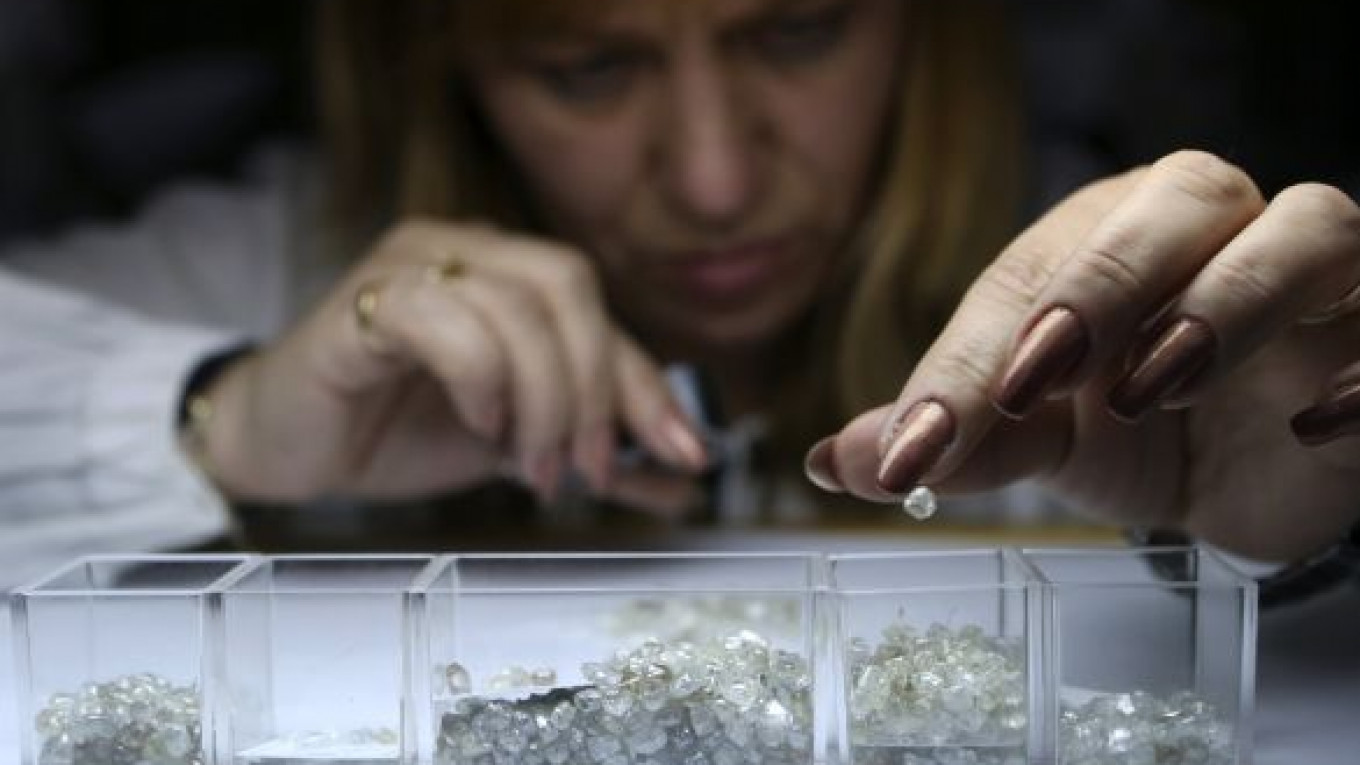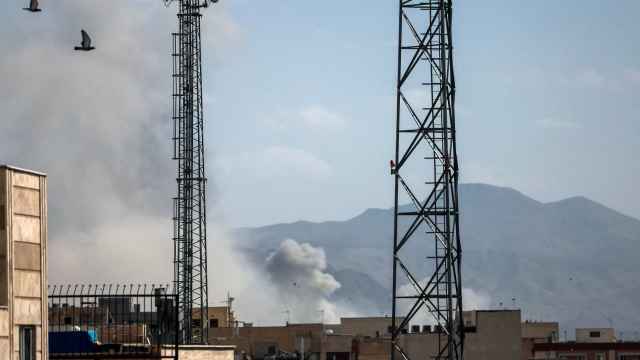The Russian government sold a 16 percent stake in diamond miner Alrosa at the bottom of a planned price range Monday, highlighting the lack of progress in a state privatization drive that was supposed to net $13 billion this year.
The $1.3 billion stake in Alrosa, which vies with De Beers for the mantle of the world's largest diamond producer, is the Russian state's only sale this year and one of the ten biggest in Europe so far in 2013.
But the low sale price prompted some analysts to suggest it had been a struggle to place all of the shares on offer, adding to the delays or false starts that have hampered the plan to generate $13.44 billion from sell-offs this year.
Alrosa's offer price of 35 rubles per share, putting the company's market capitalization at 258 billion rubles ($8.12 billion), was at the bottom of the projected range of 35 rubles and 38 rubles a share.
"At least they got something, but not that much, and it was way below what they had originally planned," said UralSib economist Alexei Devyatov.
"There is no clear political will in the government to do the privatization. … They do not fulfill their own plans."
Prime Minister Dmitry Medvedev in 2010 laid out a program of sales aimed at drawing more investment and energy into the state sector and revitalizing the weaker areas of a $2.1 trillion economy now growing at its slowest pace in four years.
But the government has since proceeded to slash the privatization targets, unable to reach a consensus on deadlines for sales and hampered by officials who argue that a weak global economy makes this the wrong time to sell some of the prize assets on offer.
Sales of shipping group Sovcomflot, a stake in oil monopoly Rosneft and Russian Railways had all been on the cards for this year, according to plans from last October. A year on, only Alrosa has been completed.
First Deputy Prime Minister Igor Shuvalov said Monday that the pricing of the Alrosa sale showed a robust level of investor interest.
"There was a proposal to set a lower price limit of about 33 rubles. We took a risk and set the price at 35 rubles … both the oversubscription and the quality of investors show that the decision was correct," Shuvalov said, speaking at a ceremony to launch the sale at the Moscow Stock Exchange.
Two sources close to the deal said the order book was oversubscribed by 30 to 40 percent, while other market sources said U.S. investors were the biggest buyers of the shares, purchasing up to 60 percent of the stake.
Russian investors accounted for about 14 percent.
Buyers included U.S. asset management group Lazard and investment firms Capital, Highbridge, OppenheimerFunds and PIMCO, as well as a state-backed fund, the Russian Direct Investment Fund, or RDIF, whose mandate is to co-invest with private partners.
Traders can start dealing in the shares late Thursday.
Others were less bullish on how the sale had gone. Metals and mining analyst at Societe Generale Sergei Donskoi said organizers had done well to secure this level of investment.
"From what we know, it was not easy to build the book even at the bottom of the range. It required some effort, but despite all the difficulties the organizers did not lower the price range or cut the number of shares on offer," he said.
Alrosa, which accounts for 25 percent of global diamond production by value, is listed on the Moscow Stock Exchange, but only a small number of its shares are available to trade and the market is illiquid.
The sale will lift its free float to 23 percent.
A Message from The Moscow Times:
Dear readers,
We are facing unprecedented challenges. Russia's Prosecutor General's Office has designated The Moscow Times as an "undesirable" organization, criminalizing our work and putting our staff at risk of prosecution. This follows our earlier unjust labeling as a "foreign agent."
These actions are direct attempts to silence independent journalism in Russia. The authorities claim our work "discredits the decisions of the Russian leadership." We see things differently: we strive to provide accurate, unbiased reporting on Russia.
We, the journalists of The Moscow Times, refuse to be silenced. But to continue our work, we need your help.
Your support, no matter how small, makes a world of difference. If you can, please support us monthly starting from just $2. It's quick to set up, and every contribution makes a significant impact.
By supporting The Moscow Times, you're defending open, independent journalism in the face of repression. Thank you for standing with us.
Remind me later.






